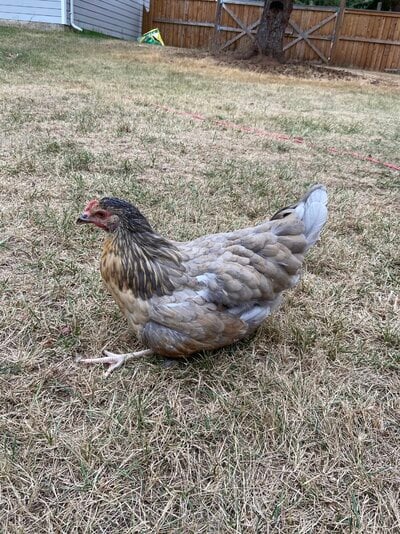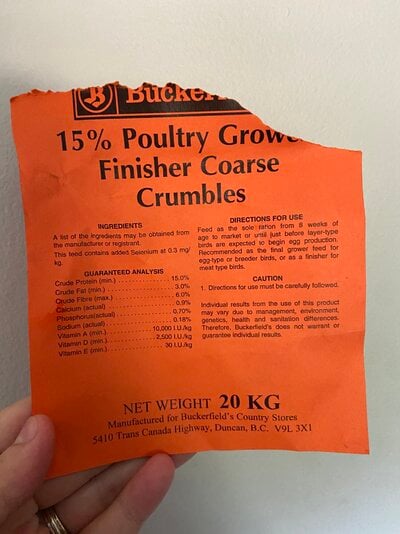jlangridge
Chirping
- Jun 24, 2021
- 11
- 28
- 69
I have a four month old EE that started displaying symptoms for an injured leg about five days ago. she was walking on one of her hocks and hobbling along. I put her in a Rubbermaid tote to force her to rest it, but it seems as though it may be getting worse. I took her out today to see if it was getting better and it definitely is not.
Things to note:
All of my chickens are unvaccinated.
I had another hen displaying some of the same symptoms but came about a bit differently. She was high stepping and then started not being able to walk well at all. Sitting on her hocks constantly and walking on them too. I have been giving her Poly Vit Sol drops because I thought maybe it was a riboflavin deficiency after doing a lot of research. She seems to be getting better. Back to walking more but still high stepping. And now exhibiting loss of some of her sight. Pecking at food but completely missing, running into things, the high stepping.
I treated for lice a week ago with Doktor Doom lice spray.
They are all fed commercial chicken feed.
I’m new to my little flock since this spring. I have 11 chickens.
I’m getting very nervous that it’s Mareks . I’ve attached some pics and some links to videos of her trying to walk. The videos aren’t great cause I couldn’t get her to walk much!
. I’ve attached some pics and some links to videos of her trying to walk. The videos aren’t great cause I couldn’t get her to walk much!
Things to note:
All of my chickens are unvaccinated.
I had another hen displaying some of the same symptoms but came about a bit differently. She was high stepping and then started not being able to walk well at all. Sitting on her hocks constantly and walking on them too. I have been giving her Poly Vit Sol drops because I thought maybe it was a riboflavin deficiency after doing a lot of research. She seems to be getting better. Back to walking more but still high stepping. And now exhibiting loss of some of her sight. Pecking at food but completely missing, running into things, the high stepping.
I treated for lice a week ago with Doktor Doom lice spray.
They are all fed commercial chicken feed.
I’m new to my little flock since this spring. I have 11 chickens.
I’m getting very nervous that it’s Mareks







